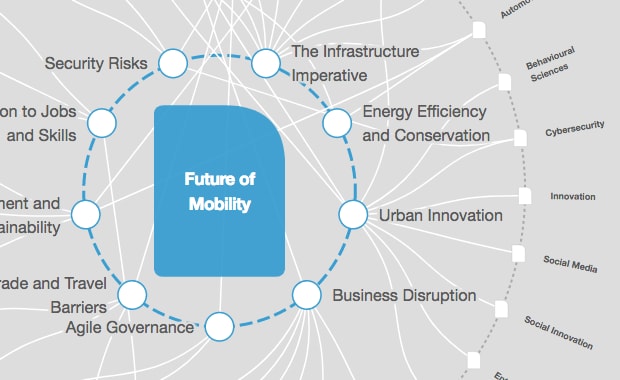These retailers in the US are installing EV chargers to help you charge while you shop

Companies such as Electrify America are leading the way towards an extensive nationwide grid of EV chargers in the US. Image: REUTERS/Robert Galbraith
It’s not just Walmart that’s adding EV chargers.
Electrify America, a subsidiary of Volkswagen, announced Monday that it’s building out electric car chargers at more than 100 locations including at retail giant Target, shopping center developer Brixmor and fueling outlet Sheetz. The news comes on the heels of an announcement last week that Walmart would double the number of EV chargers at its locations working with Electrify America.
Electrify America’s latest real estate deals, revealed this week and last week, will deliver more than 200 electric vehicle charging stations around the U.S. (Each station will include multiple charging ports of varying capacities.) The company plans to spend $500 million outfitting 484 charging locations (including the infrastructure for 2,000 DC fast EV chargers) as part of its first cycle of deployments.
The uptick in demand for EV chargers
The new partnerships illustrate how electric vehicles are continuing to become more mainstream and accessible as the price of electric cars drops, as the range of electric car batteries grows and as companies invest in charging infrastructure to help refuel these vehicles in more locations.
"For convenience stores that have gas stations, electric vehicle chargers could add considerable time to a customer’s experience."
Electrify America, created as part of a settlement after Volkswagen was caught cheating on its diesel vehicle emissions tests, has a plan to spend $2 billion building out electric vehicle charging infrastructure across the United States.
"We’ve seen an uptick in parties interested in electric vehicle chargers," Electrify America chief operating officer Brendan Jones told GreenBiz. "I started installing fast DC chargers in 2011, and the hand-raisers we see today are different than they were five or six years ago."
From the perspective of the retail outlets, the real estate firms and the fueling sites that are adding EV chargers there can be a variety of benefits. The motivation of the companies involved has been evolving as the market has accelerated.
In the early days of electric cars, for example, adding EV chargers to a retail outlet was more about meeting sustainability goals, Jones noted. But more recently businesses are realizing that it’s become "an opportunity to bring in new types of drivers to their locations," he said.
In addition to capturing new customers, businesses potentially could keep customers for a longer period of time in stores if they’re charging their vehicles outside. More time spent in stores can boost the amount of money that customers spend at retail.
For convenience stores that have gas stations, electric vehicle chargers could add considerable time to a customer’s experience. Currently, it takes significantly longer to charge an EV than to pump gas.
The chargers that Electrify America is using — from vendors ABB, Signet EV, Efacec Electric Mobility and BTC Power — will deliver a range of charging times. Some could be on the slow end using 50-kilowatt chargers, while some could deliver ultra-fast charging using 350-kilowatt technology.
EV chargers at public places
While there were around 16,000 public electric car charging stations in the United States as of last year, only 13 percent of those were DC fast chargers. Companies such as Electrify America, ChargePoint and evGO are building out charging networks, while utilities are also investing in public charging infrastructure. Tesla is building out its own proprietary charging network.
Many electric car owners will charge up mostly at home, but analysts agree that more chargers will need to be built in public places and at work locations to help electric vehicles become more mainstream.
Target isn’t just working with Electrify America, it’s also partnered with ChargePoint and Tesla. Target began building out EV charging infrastructure in 2012 with ChargePoint.
The retailer said Monday that it’s expanding its charging network to 600 parking spaces at over 100 sites across 20 states over the next two years. "[A]dding charging stations at Target stores — where guests can drive up, plug into EV chargers, and shop while their car charges — makes a lot of sense," said Target in a blog post.
Out of Electrify America’s $2 billion charging plan, $800 million will be spent on infrastructure in California. The state has the highest per capita EV ownership in the nation.
Electric cars could be cheaper to buy and use than internal combustion engine cars in most countries starting in 2025, predicts Bloomberg New Energy Finance. In close to two decades, 54 percent of new car sales could be electric, estimates the analysts.
Don't miss any update on this topic
Create a free account and access your personalized content collection with our latest publications and analyses.
License and Republishing
World Economic Forum articles may be republished in accordance with the Creative Commons Attribution-NonCommercial-NoDerivatives 4.0 International Public License, and in accordance with our Terms of Use.
The views expressed in this article are those of the author alone and not the World Economic Forum.
Stay up to date:
Mobility
Related topics:
Forum Stories newsletter
Bringing you weekly curated insights and analysis on the global issues that matter.
More on Energy TransitionSee all
Roberto Bocca
November 17, 2025







